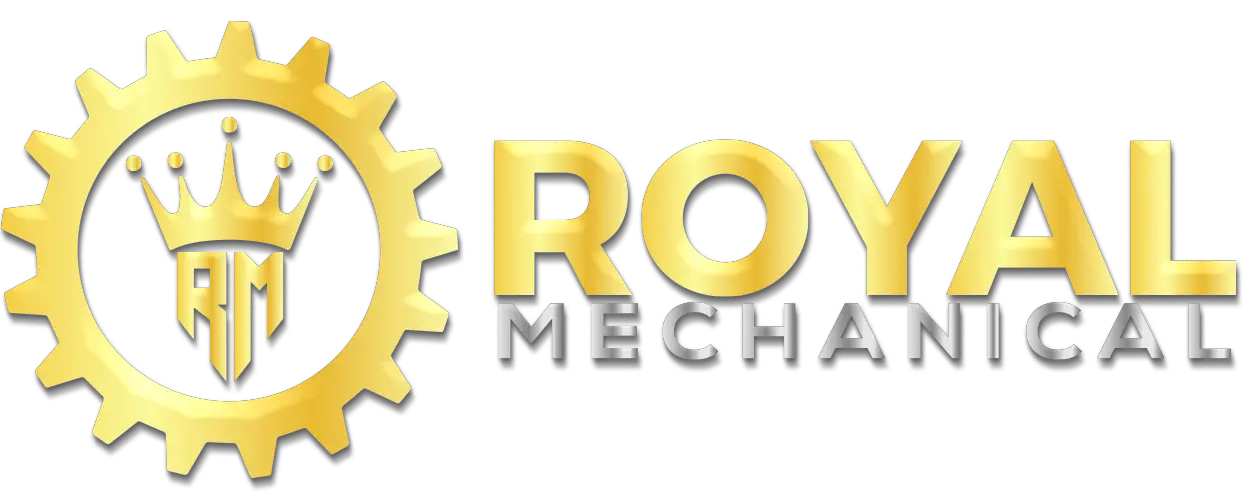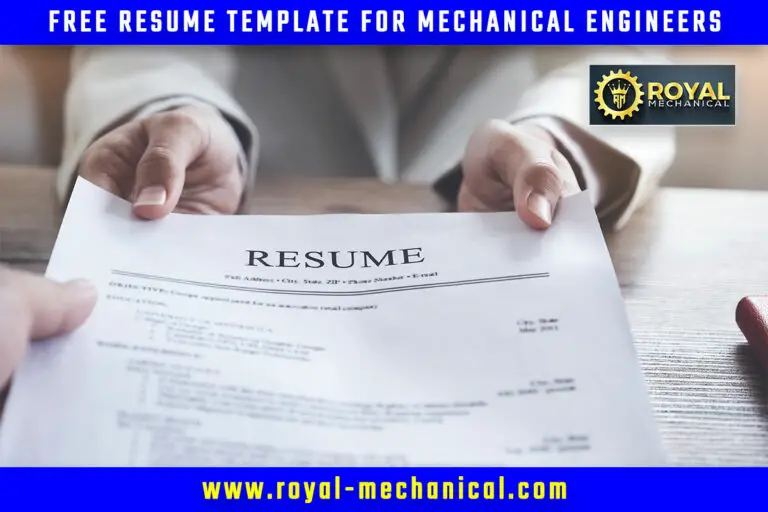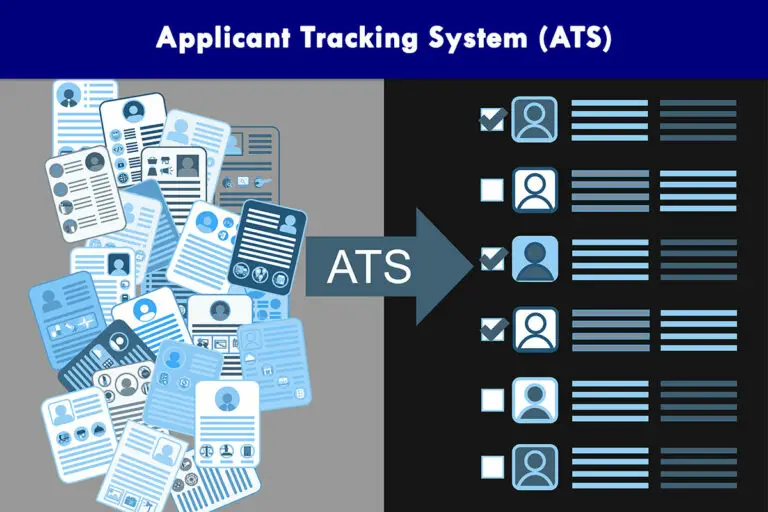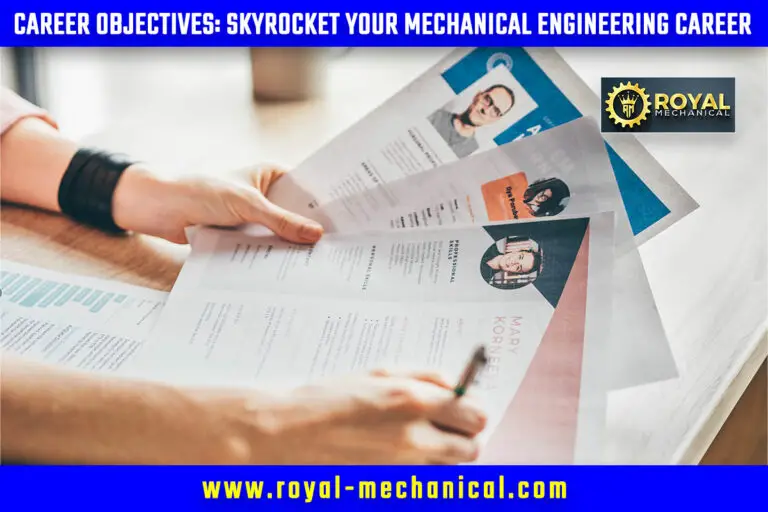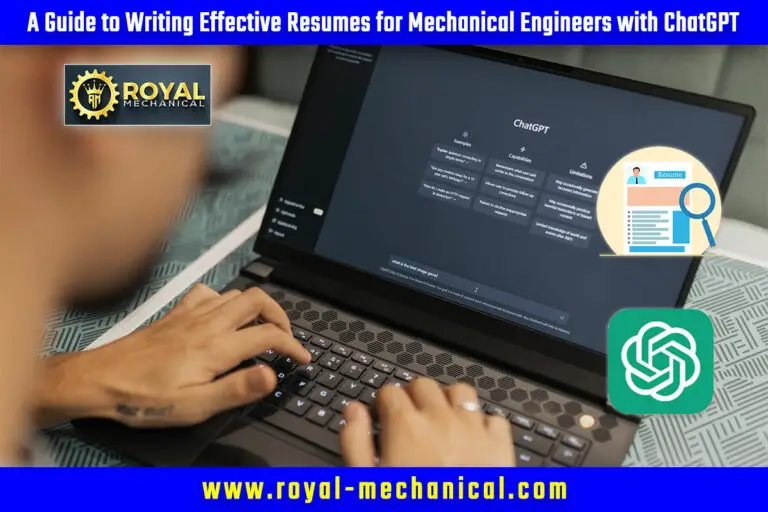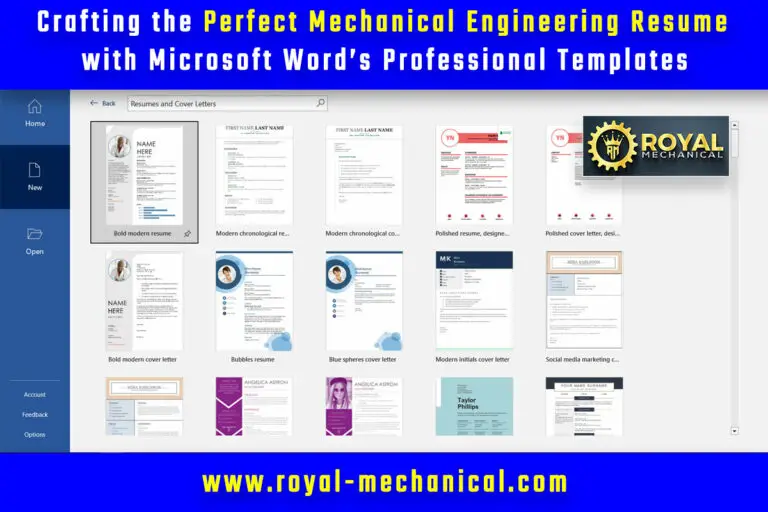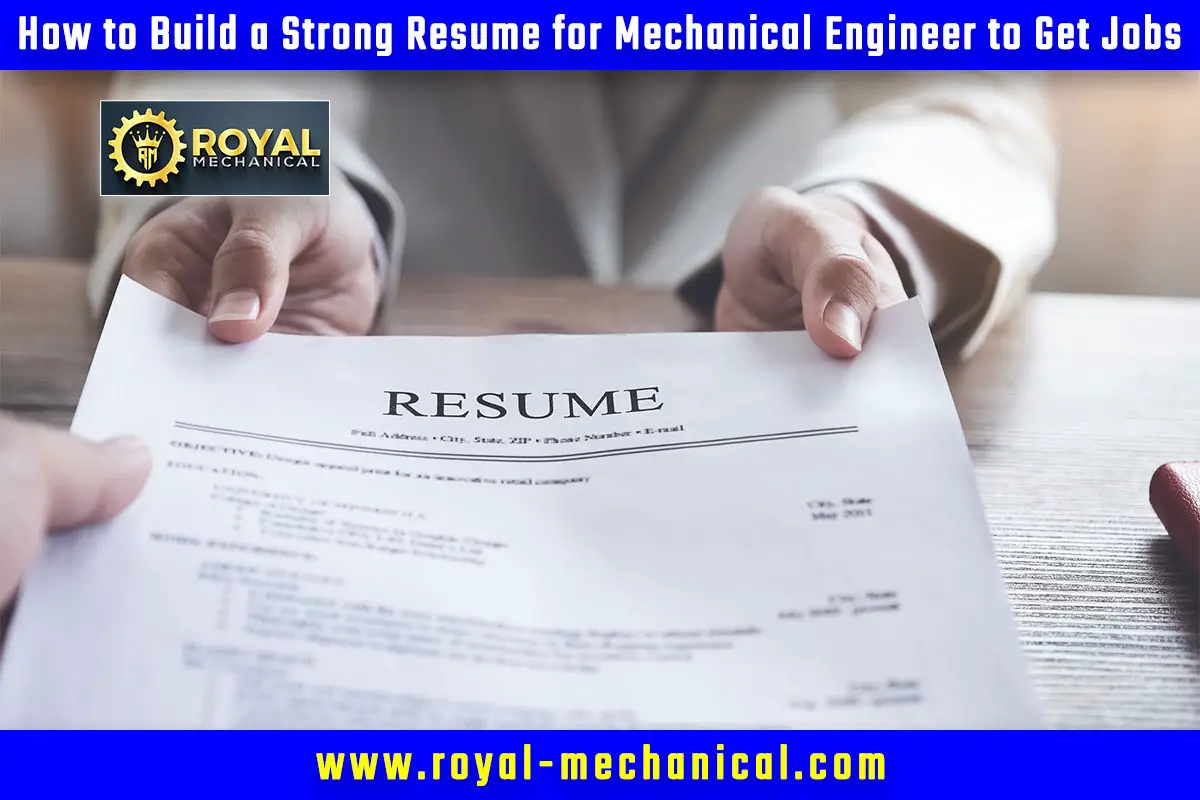
Introduction:
A well-crafted resume for a mechanical engineer is crucial for any aspiring mechanical engineer looking to secure a job in a competitive industry. A strong resume showcases your technical skills and educational background. In addition, it highlights your achievements, experiences, and qualifications that make you a standout candidate. This comprehensive guide will walk you through the step-by-step process of building a solid resume for a mechanical engineer to get jobs. From formatting and content organization to critical sections and tips for optimizing your resume, we will provide actionable strategies to make your resume stand out.
At the end of this article, you will find a checklist to build a strong resume for mechanical engineers to get jobs.
Table of Contents
Section 1: Understand the Purpose of a Mechanical Engineering Resume:
Before diving into the details of resume building, it’s essential to understand the purpose of a mechanical engineering resume. Your resume is a marketing tool to present your skills, qualifications, and experiences to potential employers. Therefore, it should communicate your abilities and accomplishments effectively, demonstrating why you fit the job. Understanding this purpose will guide you throughout resume-building, helping you prioritize and highlight the most relevant information.
Section 2: Choose an Appropriate Resume Format:
The choice of resume format is crucial to ensure your information is presented clearly and organized. The two most common formats for mechanical engineering resumes are chronological and functional. The chronological format emphasizes your work experience, listing it in reverse chronological order. In contrast, the functional format focuses on skills and achievements. Depending on your experience level and career goals, you can choose the format that best highlights your strengths and aligns with the job requirements.
Section 3: Highlight Your Contact Information:
At the top of your resume, include your contact information, such as your full name, phone number, email address, and professional LinkedIn profile. Ensure this information is accurate and up to date, as it serves as a means for employers to reach out to you for further consideration. Additionally, consider adding a professional and concise headline or branding statement summarizing your expertise or career objective.
Section 4: Craft a Powerful Summary or Objective Statement:
The summary or objective statement is an important section that provides a concise overview of your skills, experience, and career goals. A well-crafted summary statement can grab the attention of hiring managers and entice them to continue reading your resume. Tailor your summary or objective statement to align with the job you are applying for, emphasizing your unique selling points and what you can bring to the organization.
Section 5: Showcase Your Educational Background:
As a mechanical engineer, your educational background is vital. Include details such as your degree, university or institution, graduation date, and academic honors or awards. If you are a recent graduate or have limited work experience, consider placing your education section before your work experience section to highlight your qualifications.
Section 6: Emphasize Your Relevant Skills:
In the skills section, highlight the technical and soft skills relevant to mechanical engineering. Technical skills may include CAD software proficiency, thermodynamics and fluid mechanics knowledge, material selection, and machine design principles. Soft skills such as problem-solving, critical thinking, teamwork, and communication are also essential for a successful career in mechanical engineering. Tailor your skills section to match the requirements and keywords mentioned in the job description.
Section 7: Detail Your Work Experience:
In the work experience section, provide a detailed overview of your professional experiences, starting with your most recent job. Include the company name, job title, employment dates, and a brief description of your responsibilities and achievements. Focus on showcasing projects you have worked on, results you have achieved, and any specific contributions you have made to the organization. Use bullet points to highlight key accomplishments and quantify your achievements whenever possible.
Section 8: Include Projects, Internships, and Research Work:
Mechanical engineering is a practical field, and including relevant projects, internships, and research work can significantly enhance your resume. Highlight significant projects or research you have undertaken, detailing your role, objectives, methodologies, and outcomes. In addition, include any technical skills or knowledge gained during these experiences relevant to the job you are applying for.
Section 9: Highlight Professional Affiliations and Certifications:
Demonstrate your commitment to professional development by including memberships in relevant engineering societies or associations. Additionally, mention any certifications you have obtained pertinent to the mechanical engineering field, such as Professional Engineer (PE) or specialized software certifications. These affiliations and certifications add credibility to your resume and show your dedication to staying current with industry standards and best practices.
Section 10: Include Additional Sections to Strengthen Your Resume:
Consider including additional areas to strengthen your resume further. These sections may include publications, patents, technical presentations, language proficiency, or relevant coursework. Again, be selective and have only those sections that provide value and support your qualifications for the job you are applying for.
Section 11: Proofread and Edit Your Resume:
Before submitting your resume, take the time to carefully proofread and edit it for any grammatical or spelling errors. Ensure consistency in formatting, font styles, and bullet points. Ask a trusted friend or mentor to review your resume and provide feedback to ensure clarity and effectiveness.
Section 12: Optimize Your Resume for Applicant Tracking Systems (ATS):
Many companies use applicant tracking systems to scan resumes for specific keywords and qualifications. To increase your chances of passing ATS screenings, tailor your resume to match the keywords and phrases in the job description. Use industry-specific terms and words where appropriate but avoid keyword stuffing. Instead, focus on creating a balanced, readable document that appeals to ATS and human readers.
Section 13: Tailor Your Resume for Each Job Application:
Every job application is unique, and tailoring your resume to the specific job requirements can significantly improve your chances of getting noticed. Analyze the job description, identify the critical skills and qualifications sought by the employer, and customize your resume accordingly. Highlight the most relevant experiences, skills, and achievements that align with the job requirements.
Section 14: Use Action Verbs and Quantifiable Achievements:
Use action verbs to describe your accomplishments and responsibilities to make your resume impactful. Begin each bullet point with a strong action verb to convey a sense of proactivity and achievement. Additionally, whenever possible, quantify your accomplishments by using specific numbers, percentages, or measurable outcomes to demonstrate the impact of your work.
Section 15: Keep Your Resume Updated:
Lastly, make it a habit to keep your resume updated with new skills, experiences, and achievements as you progress in your career. Review and refine your resume to reflect your most recent accomplishments and qualifications. Stay up-to-date with industry trends and advancements and incorporate relevant information into your resume to showcase your continuous professional growth.
Conclusion:
Building a strong resume is critical in securing a mechanical engineering job. Following the step-by-step guide outlined in this article, you can create a compelling resume that effectively highlights your skills, experiences, and qualifications. Remember to tailor your resume for each job application, optimize it for applicant tracking systems, and showcase your technical proficiency, educational background, work experience, and relevant projects. A well-crafted resume will showcase your strengths, set you apart from other candidates, and increase your chances of landing an interview and ultimately securing your desired mechanical engineering job.
By investing time and effort into developing a solid resume, you are setting yourself up for success and positioning yourself as a top candidate in the competitive job market.
Sample Resume for Mechanical Engineer to Get Jobs
Coming soon…
One More Sample Resume for Mechanical Engineer to Get Jobs
Coming soon…
Resume Check List to Build a Strong Resume for Mechanical Engineer to Get Jobs
Building a strong resume is crucial for mechanical engineers seeking a job in the field. To help you create an effective resume, here is a checklist of critical elements to consider:
| Sl. No. | Check Point | Check |
| 1 | Include all contact information: Have you included your full name, phone number, email address, and professional LinkedIn profile (if applicable)? | o |
| 2 | Craft a compelling resume objective or summary: Have you crafted a concise statement highlighting your career goals, relevant skills, and qualifications? | o |
| 3 | List your educational background: Have you listed your degrees earned, institution names, graduation dates, and any academic honors or distinctions? | o |
| 4 | Highlight technical skills: Have you highlighted your proficiency in critical technical skills such as CAD software, programming languages, and industry-specific tools? | o |
| 5 | Detail work experience: Have you detailed your professional experience, including company names, job titles, employment dates, and descriptions of responsibilities and achievements? | o |
| 6 | Showcase projects and internships: Have you highlighted relevant projects or internships demonstrating your technical abilities and problem-solving skills? | o |
| 7 | Mention certifications and licenses: Have you mentioned any certifications or licenses obtained, such as Professional Engineer (PE) certifications or specialized software certifications? | o |
| 8 | Highlight leadership and extracurricular activities: Have you included any leadership roles, participation in engineering societies, volunteer work, or relevant extracurricular activities? | o |
| 9 | Include publications and presentations: Have you listed any publications, research papers, or technical presentations you have contributed to in the field of mechanical engineering? | o |
| 10 | Highlight awards and honors: Have you highlighted any awards, scholarships, or honors received during your academic or professional journey? | o |
| 11 | Mention professional affiliations: Have you mentioned memberships in engineering societies or associations that showcase your commitment to professional development? | o |
| 12 | Include references or indicate availability: Have you included references or indicated that they are available upon request? | o |
| 13 | Use a clean and professional resume format: Have you used a clean and professional format with consistent font styles and sizes? | o |
| 14 | Proofread and edit your resume: Have you carefully reviewed your resume for grammatical errors, typos, and formatting inconsistencies? | o |
| 15 | Tailor your resume for each job application: Have you customized your resume to highlight the most relevant skills, experiences, and achievements for each job application? | o |
| 16 | Optimize your resume for applicant tracking systems (ATS): Have you incorporated keywords and phrases from the job description to optimize your resume for ATS screenings? | o |
| 17 | Keep your resume concise and focused: Have you aimed for a concise resume, typically one to two pages in length? | o |
| 18 | Use a professional email address: Have you used a professional email address that includes your name? | o |
| 19 | Ensure consistency and accuracy: Have you ensured consistency in formatting, verb tenses, and using acronyms or abbreviations? Have you double-checked all information for accuracy? | o |
| 20 | Conduct a final review: Have you conducted a final check to ensure all sections are complete and well-organized and communicate your qualifications and experiences effectively? | o |
Download the Resume Check List to Build a Strong Resume for Mechanical Engineer to Get Jobs
FAQs to Build a Strong Resume for a Mechanical Engineer to Get Jobs
What should be included in a mechanical engineer’s resume?
A mechanical engineer’s resume should include contact information, a compelling objective or summary, educational background, technical skills, work experience, projects and internships, certifications and licenses, leadership and extracurricular activities, publications and presentations, awards and honors, professional affiliations, and references.
How long should a mechanical engineer’s resume be?
A mechanical engineer’s resume should typically be one to two pages long to ensure it is concise and focused.
Should I tailor my resume for each job application?
Yes, it is recommended to tailor your resume for each job application by highlighting the most relevant skills, experiences, and achievements that align with the job requirements.
How can I optimize my resume for applicant tracking systems (ATS)?
To optimize your resume for ATS screenings, incorporate keywords and phrases from the job description throughout your resume. Ensure a balanced approach that appeals to both ATS and human readers.
Should I include a resume objective or summary?
Yes, including a concise and compelling resume objective or summary can effectively communicate your career goals, relevant skills, and qualifications to potential employers.
What technical skills should I highlight in my mechanical engineering resume?
Highlighting technical skills relevant to mechanical engineering, such as CAD software proficiency, programming languages, and industry-specific tools, is essential.
How can I make my resume stand out as a mechanical engineer?
To make your resume stand out, showcase your unique experiences, notable projects, and specific achievements that demonstrate your impact and differentiate you from other candidates.
Should I include references on my mechanical engineering resume?
It is not necessary to include references on your resume. Instead, you can mention that references are available upon request.
How can I ensure my resume is error-free and well-formatted?
Proofread your resume for grammatical errors, typos, and formatting inconsistencies. Consider using online tools or seeking assistance from a trusted friend or mentor to ensure accuracy.
Can I include relevant coursework or research projects on my mechanical engineering resume?
Yes, including relevant coursework or research projects can be beneficial, especially for recent graduates or those with limited work experience.
Should I include a cover letter with my mechanical engineering resume?
While a cover letter is not always required, it can provide an opportunity to explain your qualifications further and express your interest in the position.
How can I showcase my problem-solving skills on my mechanical engineering resume?
Highlight specific projects or accomplishments where you applied problem-solving techniques to overcome challenges and achieve successful outcomes.
Is it essential to quantify my achievements on my mechanical engineering resume?
Quantifying your achievements with numbers, percentages, or other metrics helps to demonstrate the impact and value you brought to previous roles.
Should I include non-engineering work experience on my mechanical engineering resume?
Non-engineering work experience can be included if it showcases transferable skills or demonstrates teamwork, leadership, or communication qualities.
How can I demonstrate my knowledge of industry-specific regulations or standards on my mechanical engineering resume?
Mention any relevant certifications, compliance training, or familiarity with industry-specific regulations or standards that apply to your field.
Can I include relevant volunteer work on my mechanical engineering resume?
Yes, including relevant volunteer work can demonstrate your commitment to community involvement and showcase transferable skills.
Should I include a skills section on my mechanical engineering resume?
Yes, including a dedicated skills section allows you to highlight your technical proficiencies, software knowledge, and other relevant skills.
How can I showcase my teamwork and collaboration skills on my mechanical engineering resume?
Mention team-based projects, group work, or cross-functional collaborations demonstrating your ability to work effectively in a team environment.
Is it necessary to include professional development activities on my mechanical engineering resume?
Yes, including professional development activities such as workshops, seminars, or online courses can showcase your commitment to continuous learning and self-improvement.
Should I include a portfolio or samples of my work with my mechanical engineering resume?
If applicable, including a link to an online portfolio or attached work samples can provide employers with tangible evidence of your skills and capabilities.
